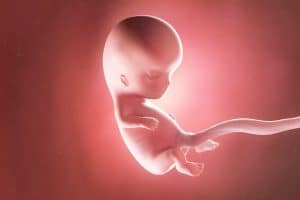Study Discovers Placenta Injuries Related to COVID-19
 Northwestern has been testing all pregnant women who enter their facility for COVID-19 since April; however, a study conducted by doctors at the hospital have found evidence of placenta damage in women who tested positive for the virus. The placenta helps to provide the fetus with food and then remove waste, making it an important organ during pregnancy.
Northwestern has been testing all pregnant women who enter their facility for COVID-19 since April; however, a study conducted by doctors at the hospital have found evidence of placenta damage in women who tested positive for the virus. The placenta helps to provide the fetus with food and then remove waste, making it an important organ during pregnancy.
The senior author of the study, Dr. Jeffrey Goldstein, is an assistant professor of pathology at the Northwestern University Feinberg School of Medicine. Dr. Goldstein noted that we should be mindful of the study’s findings regarding the birth injuries but not fearful.
An overview of the study
There were 16 women who took part in the study by Northwestern who had tested positive for COVID-19 at some point during their pregnancy or immediately after giving birth. Each woman’s placenta was examined in order to find any evidence of damage caused by the Coronavirus.
Two of the women in the study tested positive within weeks of delivering their babies, four women tested positive prior to delivery, and 10 women received positive tests for COVID-19 when they arrived at the hospital to deliver.
All 16 women who tested positive for COVID-19 have since recovered, according to Dr. Goldstein.
The results of the study
The results of the study were astounding. Doctors found evidence of maternal vascular malperfusion, which is when there is an abnormal flow of blood between the mother and the fetus. Maternal vascular malperfusion is often found in pregnant women who suffer from preeclampsia and hypertension. The study also discovered blood clots in the placentas.
“There’s an emerging consensus that problems with blood clotting and circulatory problems are a feature of the coronavirus,” said Dr. Goldstein. “And I think our work shows there might be something clot-forming about coronavirus, and it’s happening in the placenta.”
Concerns over newborn health
There have been mounting concerns over newborn health during the global pandemic. The study has shown that the majority of newborns were healthy at birth.
One baby had to be delivered at only 34 weeks because the mother’s symptoms from COVID-19 had worsened. An asymptomatic patient suffered a miscarriage in her second trimester, but Dr. Goldstein does not know if COVID-19 had a direct correlation to the miscarriage.
“We need to follow up on these kids. There’s a tendency in pregnancy research to sunset when everyone goes home from the hospital, and that’s not good enough,” he said.
Dr. Goldstein went on to say that all pregnant women need to be monitored much closer during their pregnancy due to the Coronavirus.
“The women who are pregnant now, the women who are delivering now didn’t know they’d be pregnant in the middle of a giant pandemic,” Goldstein said. “Pregnant women should avoid getting COVID-19 and should consider as the nation opens, as Chicago opens, whether to hang back a bit.”
Are you pregnant in the middle of the Coronavirus pandemic in Mississippi? Did you deliver during the pandemic? It’s perfectly normal to be worried about your health and the health of your newborn or unborn child. Call the office of Merkel & Cocke, P.A. to schedule a consultation with a birth injury attorney at 662-627-9641, or complete a contact form online. We serve clients from our offices in Jackson, Clarksdale, and Oxford.

Since 1982, Merkel & Cocke, P.A. has offered thorough, aggressive legal representation on behalf of clients throughout Mississippi. As one of the largest plaintiffs’ personal injury law firms in the state, we consider it our duty and our honor to serve the people of our communities, and to uphold their rights in court. Our reputation is such that other law firms turn to us when they need legal counsel, and our business has grown through the years because of the referrals of these attorneys, who trust us with their needs and the needs of their clients. We are the firm you can trust when there are challenges ahead. To schedule a free consultation, please complete our contact form.
